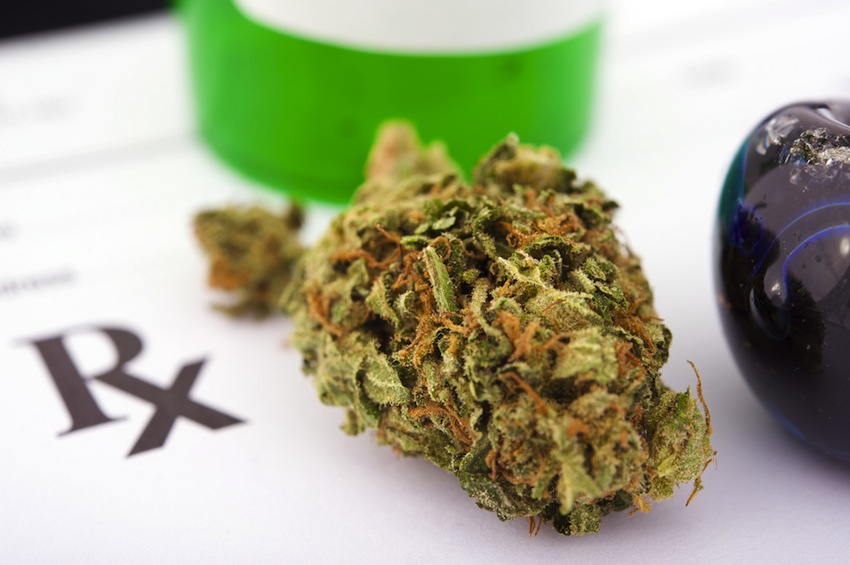Department Of Public Health Starts Second Phase of Medical Marijuana Dispensary Selection Process
Of the 181 applicants interested in opening up a medical marijuana dispensary in Massachusetts, 158 are eligible to move onto the next phase, according to officials from the Department of Public Health, the agency in charge of regulating the facilities.
Last month, the DPH began what they called “Phase One” of the process, and accepted forms from interested entrepreneurs looking to get into the growing and distribution business, now that medical marijuana has been legalized in the state.
Of the many that applied, only 158 will advance to “Phase Two” of the selection process, where a committee will conduct an in-depth review and select dispensaries through a competitive process.
Under phase one, dispensary applicants were reviewed for their non-profit status and financial viability. Applicants also had to report whether any member of their proposed organization had a felony drug conviction. According to the DPH, 22 applicants did not meet the criteria to proceed to the second phase of the process, and one applicant withdrew. Applications were denied for a wide variety of reasons, including failing to incorporate as a non-profit, or a lack of demonstrated financial viability.
Based on regulations constructed by DPH officials, which were released in May, a company interested in opening a dispensary needs to have significant amounts of cash on hand in order to keep the business afloat. Entrepreneurs that want to open a shop, in order to sell to qualifying patients, would be subject to $50,000 in annual renewal and registration costs as well as a yearly $500 registration fee for each of their employees.
That price tag is on top of the $500,000 the state is requiring potential business owners to have when they go to apply for a license. Beyond that, during the initial application process, interested applicants had to make a $1,500 non-refundable payment for the first phase of consideration, and a $30,000 payment for the second phase. “This is a very competitive process, and we required applicants to meet high standards to advance,” said DPH Commissioner Cheryl Bartlett, R.N. “We are fortunate that Massachusetts has a large field of serious applicants, who are capable of making a significant investment to benefit qualified patients and safeguard communities.”
The 158 applicants who met the criteria have been notified, and can apply for the final phase of the review process, according to DPH officials. An informational meeting for applicants will be held on Thursday, October 10, at the Holiday Inn in Somerville. At the meeting, DPH officials will address questions on the application process.
Officials said that once all of the applications come in for the second part of the selection process, the committee will evaluate and score them, scrutinizing their ability to meet the health needs of registered patients, appropriateness of the site, geographical distribution of dispensaries, local support, and ensuring public safety, according to a statement from the DPH.
The voter-approved law allows DPH to register up to 35 dispensaries across the state, with at least one but no more than five, dispensaries per county.
Applicants will also face an additional hurdle as they move forward with the process. Each interested business owner must receive the support of a local community prior to moving in to set up shop. Businesses will have to prove to the DPH that their prospective dispensary complies with all municipal rules, regulations, ordinances and bylaws—something that may be difficult considering the amount of communities—despite the high percentage of voter-approval for the legalization of medical marijuana—that have recently put moratoriums in places to keep dispensaries at bay until re-zoning and community discussions about the pot plant sellers can occur.
A recent State House News Service study showed that at least 115 municipalities have passed temporary moratoriums, restricting medical marijuana dispensaries for a certain time, while others are considering similar measures or are drafting new zoning laws to determine where they can be housed.
Martin Lee, author of Smoke Signals: A Social History of Marijuana, said he is not surprised by the amount of moratoriums put in place, despite support from voters to legalize the drug for medicinal purposes—something he said California also saw when the state was initially adjusting to the change in laws. “It’s not surprising. The voters aren’t making the decisions, the officials are,” he said. “There is this fear and hesitation with something like this. We are in the midst of a big cultural shift. Unfortunately, the politics lag behind, and I think that is something happening all over the country, not strictly in Massachusetts. Quite frankly it’s much to do about nothing.”
To keep cities and towns from stalling the process, Attorney General Martha Coakley developed a cut-off date to extend temporary moratoriums on the industry, running until December of 2014.



